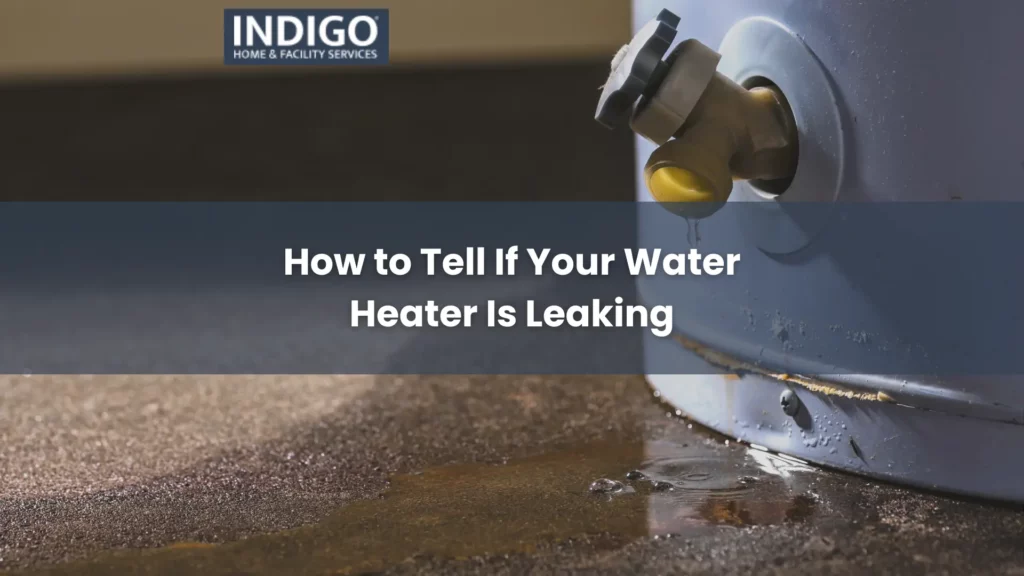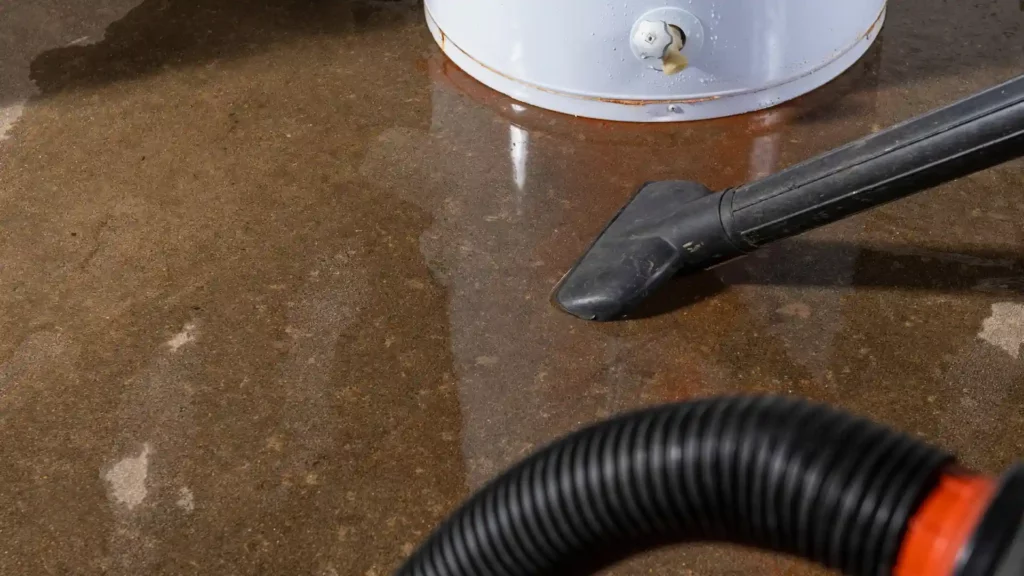
Many things can cause water to leak out of your home water heater. Worse, this problem is easy to overlook at first. If you’re not sure how to tell if a water heater is leaking, the problem may continue for some time before you realize what’s happening.
None of this should alarm you! You should simply learn how to monitor your water heater for signs of a leak early. In some cases, you can fix the problem yourself. And for those cases where you can’t, don’t be afraid to call in the pros.
Contact a licensed plumber in your area when you need a professional solution. At Indigo Home & Facility Services in Austin, Texas, we can find the source of the leak, fix it thoroughly, and take measures to prevent further issues.
Early Signs of a Water Heater Leak
The telltale signs of a leaking water heater may be subtle in the early stages. Here are some of the issues to keep an eye (and ear!) out for:
- Unusual Noises – Any new or unusual sounds could be a sign of a problem requiring your attention. Pay attention to the noises your water heater makes, specifically sounds of dripping or rushing water. A sizzling noise could be a sign of a leak if water is leaking onto the burner.
- Visual Inspection – Visually inspecting your water heater on a regular basis is a good habit to get into. Quickly checking for signs of problems can help you identify and address them early before they become major issues. Any water leaking from any component is something you shouldn’t ignore.
- Water Puddles – Puddles around your water heater could indicate a leak. Address them immediately, as a leak could result in water damage to your home.
Be aware that it’s sometimes easy to mistake signs of condensation for signs of a leak. Changes in water temperatures and other such factors may result in condensation.
If you’re not sure whether what you’re seeing is a leak or simply condensation, grab a paper towel and lay it down in the spot where you think there might be a leak. You may place a few paper towels in several spots for thorough coverage.
Check the paper towels over the course of the next day. Try to check them every hour to see if they’ve collected any water or if any water has seeped through them. If only minimal water has accumulated, you likely don’t have a leak.
Common Water Heater Leak Locations
Not sure how to tell if a water heater is leaking when conducting a visual inspection? Check for signs of a leak in one of these areas.
- Top of the Heater – Check the inlet or outlet pipes on the top of the water heater. These are common spots for leaks. The pressure relief valve is another spot where you may find a leak. If the pressure relief valve isn’t on top of the water heater, check the side.
- Bottom of the Heater – The drain valve is very often the source of a leak. The drain valve is at the bottom of the tank.
- Internal Tank Leaks – A leak may also be the result of internal corrosion. Corrosion may result in cracks or pinholes that can be very tiny at first.
Internal tank leaks may develop naturally over time as a water heater ages. If your tank has developed an internal leak, you’ll likely need to replace it.
Electric Water Heater Leaks vs Gas Water Heater Leaks
The proper way to inspect a water heater for signs of a leak can vary depending on the type of water heater you have.
To check for a leak from an electric water heater, follow these steps:
- Shut off the power to the heater
- Remove the access panel
- Remove the safety shield
- Check all the surfaces and connections of the water heater tank for signs of a leak
You don’t need to perform any special steps to determine if a gas water heater is leaking. You can merely perform a visual inspection while also listening for signs of a leak. Rust and condensation are common signs of leaks with gas water heaters.
Remember, a sizzling sound may indicate water is dripping onto the burner. This may happen if you need to replace the tank. While you wait for a licensed plumber to install a replacement, shut off the gas. Your water heater will have a switch or dial that allows you to do so. Check the manufacturer’s guide to find out how to do this.
What to Do When You Detect a Leak

Shutting off the gas or shutting off the power supply to an electric water heater is the first step to take when you believe you’ve found a leak. Shut off the water supply next.
You may be able to fix the problem yourself, depending on its cause. If the leak is around an area where pipes connect, tighten the connections.
Is your water heater leaking around the pressure relief valve? This could happen if you have your heater running at too high a temperature setting. Lower the temperature and monitor the pressure relief valve to see if doing so stops the leak.
Always exercise caution when performing any work around a water heater. A water heater is a heavy fixture that could cause injury if you’re not careful!
Contact an Austin, TX Plumber for Water Heater Repair Service
The above DIY methods don’t always yield results. If the cause of a water heater leak is an internal issue, simple fixes won’t do the trick.
Contact a licensed plumber for assistance if you’re unable to stop the leak yourself. A plumber who knows when a water heater is leaking can inspect your heater and offer the proper solution.
At Indigo Home & Facility Services in Austin, TX, our plumbers offer everything from emergency water heater repair to new water heater installation. Learn more about what we can do for you by calling us or contacting us online today.